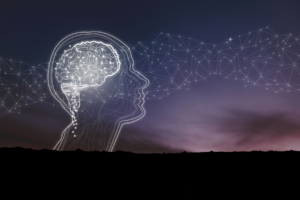 By Kathy Hubbard
By Kathy Hubbard
In 2010, the National Institute on Drug Abuse implemented National Drug and Alcohol Facts Week to create a dialogue with today’s youth that would, hopefully, generate awareness of substance misuse and prevent substance abuse. Their hope is that by knowing the science behind how our brains react to drugs, more children would, as Nancy Reagan once said, “Just say no.”
To understand how drugs affect our brains, we need to understand how our brains work. Hazelden Betty Ford Foundation explains:
“In order to carry out all of its necessary functions, from making sure your lungs are breathing to working out a calculus algorithm, the brain uses a complex communication system made up of tree-like cells called neurons.
“Neurons send electrical signals through your brain and the rest of your nervous system in order to manage everything that happens in the body. These electrical signals are controlled by chemicals called neurotransmitters, secreted from within the neurons and sent out in the brain to other surrounding neurons to activate (or deactivate) them. Neurons absorb these neurotransmitters through receptors. Each neurotransmitter is like a key, and it fits into its own specific receptor, which acts as a lock.
“In order to maintain balance, the brain can change these receptor ‘locks’ to fit other neurotransmitters when there is too much, or not enough, of a certain neurotransmitter in the system. While there are many different kinds of neurotransmitters, each neuron is only designed to produce one or two specific types. Generally, neurons are grouped together based on the neurotransmitters they produce and receive, which is why specific areas of the brain regulate certain functions.”
Our brains contain around 100 billion neurons that work nonstop to send and receive messages. These messages might tell your brain that you’re hungry and should eat or tired and should rest. When you put a chemical – drugs or alcohol – into your body, they tap into that communication system and change how information is processed. It’s no surprise that different drugs work differently.
“We know there are at least two ways drugs work in the brain: by imitating the brain’s natural chemical messengers or by overstimulating the ‘reward circuit’ of the brain,” the National Institute on Drug Abuse says.
“Some drugs, like marijuana and heroin, have chemical structures that mimic a neurotransmitter that naturally occurs in our bodies. In fact, these drugs can ‘fool’ our receptors, lock onto them, and activate the nerve cells. However, they don’t work the same way as a natural neurotransmitter. The neurons wind up sending abnormal messages through the brain, which can cause problems both for our brains and our bodies,” NIDA says.
They also explain that drugs like nicotine, alcohol, cocaine, and methamphetamine cause nerve cells to release too much dopamine. Dopamine is a natural neurotransmitter that plays a role in how we feel pleasure. WebMD describes dopamine as “a big part of our unique human ability to think and plan. It helps us strive, focus, and find things interesting.”
But, if you upset the balance of dopamine in your body, things can go awry by adding a drug or alcohol. “Drugs take control of this system, releasing large amounts of dopamine – first in response to the drug but later mainly in response to other cues associated with the drug-like being with people you used drugs with, or being in places where you used drugs. The brain remembers this feeling and sends out an intense motivation to seek and use the drug again.”
Scientists used to think it was just the rush of dopamine that created the feeling of euphoria, but now they know it doesn’t cause the rush; instead, it reinforces the desire to use drugs. It’s how our brains learn. The reward circuit is kick-started by activities that give us pleasure.
After a while, our brains adjust to the surges of dopamine. As a result, the feeling of pleasure is reduced, making previous activities less pleasurable. Dopamine encourages the brain to take the drug to feel good again. It’s the law of diminishing returns. After a while, you take the drug just to feel normal. And simply put, this is the road to addiction.
Kathy Hubbard is a member of the Bonner General Health Foundation Advisory Council. She can be reached at kathyleehubbard@yahoo.com.

